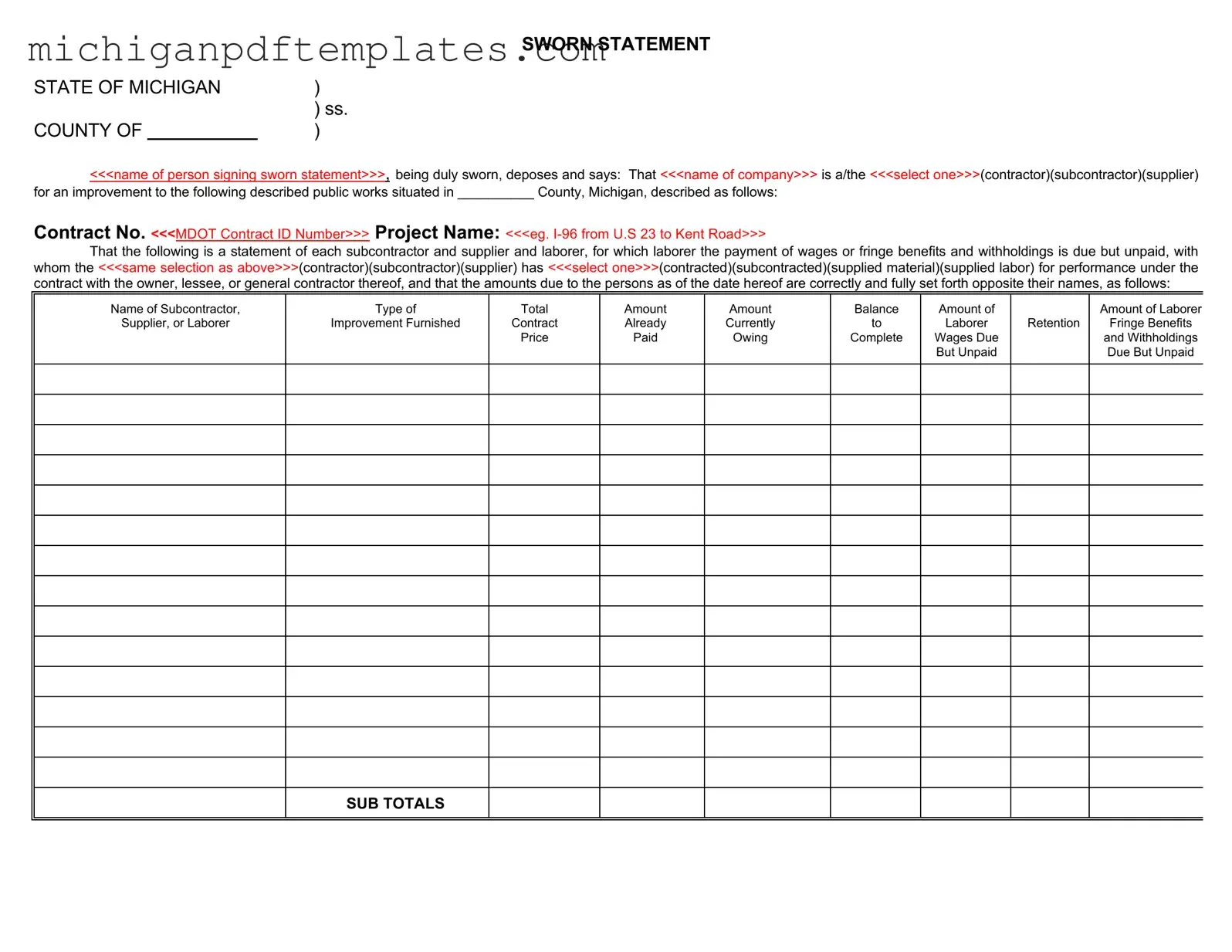Fill in Your Michigan Sworn Statement Form
The Michigan Sworn Statement form is a legal document used to confirm the payment status of contractors, subcontractors, and suppliers involved in public works projects. This form ensures that all parties are aware of any outstanding payments owed to laborers and suppliers, thereby protecting the interests of everyone involved. Completing this form accurately is essential for maintaining transparency and compliance in construction projects.
To fill out the Michigan Sworn Statement form, please click the button below.
Get Your Form Now

Fill in Your Michigan Sworn Statement Form
Get Your Form Now

Get Your Form Now
or
▼ PDF Form
Finish this form quickly and move on
Fill in and complete Michigan Sworn Statement online quickly.